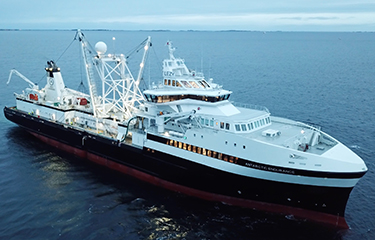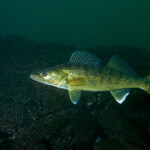Antarctic sustainability group calls on CCAMLR to better manage ocean resources

The Antarctic and Southern Ocean Coalition is calling on the Commission for the Conservation of Antarctic Marine Living Resources (CCAMLR) to designate marine protected areas (MPAs) and strengthen requirements to enter the region’s krill fishery.
The Antarctic has experienced increased attention in recent years, with several Chinese companies announcing plans to build large krill-fishing vessels and Russia floating the idea of greater krill catch as part of a national strategy to increase domestic seafood production. Krill fishing has also been a sticking point for the CCAMLR in the past regarding the designation of MPAs, with members of the commission refusing to agree as nations jockey for krill stocks in the region.
Now, the CCAMLR – which comprises 25 member nations and the European Union – is meeting from 16 to 27 October to discuss measures in the region, and the Antarctic and Southern Ocean Coalition is calling for it to finally make a decision on MPAs after repeatedly punting efforts to designate one.
"It's not only environmental groups but also conservation-minded governments that are becoming increasingly frustrated at CCAMLR's lack of protection,” Antarctic and Southern Ocean Coalition Executive Director Claire Christian said in a release. “We know it can make decisions to approve fishing, and they should be able to do so on conservation. It's a disgrace that exploitation is prioritized over protection. It's time for CCAMLR to get the job done.”
Krill fishing and the CCAMLR’s management of the region recently came under fire in an Associated Press report covering increased fishing activity. The report found that krill fishing has been the subject of geopolitical wrangling between Russia, China, and the U.S. as the total catch increased to 415,508 metric tons in 2022 – still below agreed-upon conservation limits. Roughly 70 percent of the total was harvested by Aker BioMarine, a Norwegian company.
As criticism on CCAMLR's inaction grows, so too does the need for action, The Pew Bertarelli Ocean Legacy Project Director of Antarctic and Southern Ocean Conservation Andrea Kavanagh said.
"This year, the Southern Ocean experienced record high temperatures and record low sea ice levels, which researchers believe caused the death of all emperor penguin chicks in four colonies, totaling an estimated 9,000 chicks,” Kavanagh said. “The speed of change in the Antarctic is alarming, but even more alarming is CCAMLR's failure to take any action this past decade to address the impacts of climate change. MPAs will not stop climate change, but they will help provide resilience to the ecosystem. It is time for CCAMLR to break the impasse and make good on its overdue promise to create a network of MPAs in Antarctica."
The warming waters and conservation issues, WWF Antarctic Conservation Manager Emily Grilly said, have also compounded the need for the CCAMLR to take action on krill fishing.
"Highly concentrated krill fishing in the region, coupled with runaway climate change, are putting krill under threat and, in turn, wildlife and essential ecosystems services,” Grilly said. “The balance between conservation and fishing needs to be urgently reset."
The call for more MPAs is not unique to Antarctica. U.S. President Joe Biden announced in 2021 that the country would push for a “30 by 30” initiative that would see 30 percent of the U.S. ocean protected under some form of MPA.
The actual benefit of MPAs on the marine environment is still under debate, with some studies supporting the hypothesis that they benefit biodiversity, while others find that the benefit is marginal at best.
Photo courtesy of Aker Biomarine






Share